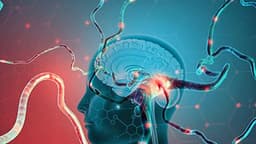Home / Health / Experts Propose Shift from "Postpartum Depression" to "Perinatal Relational Distress"
Experts Propose Shift from "Postpartum Depression" to "Perinatal Relational Distress"
16 Nov
Summary
- Postpartum depression is a spectrum, not a binary condition
- Attachment theory offers new perspective on parent-child relationship challenges
- Fragmented care system fails to address underlying relational distress

According to a recent article, the traditional concept of "postpartum depression" may be too narrow to capture the nuanced experiences of new parents. Researchers suggest moving away from a binary "depression or not" model and instead considering "perinatal relational distress" as a more accurate framework.
The article explains that the notion of postpartum depression was established in 1968 to lend scientific legitimacy to the struggles of new mothers and provide a clear diagnostic category. However, this approach fails to address the broader spectrum of emotional challenges that can arise during the transition to parenthood.
Becoming a parent can reawaken old wounds, such as emotional deprivation or experiences of rejection, leading to a crisis of maturity. The arrival of a dependent child can disrupt a parent's sense of independence, causing distress that may not fit neatly into a depression diagnosis. An attachment-based perspective offers a more holistic view, recognizing the tension between a child's dependence and a parent's need for autonomy.
The article criticizes the fragmented nature of perinatal care, where parents are often passed between different professionals, each with their own language and priorities. Instead, the authors advocate for a relationship-centered approach, providing continuous support and training teams in attachment theory. This, they argue, would better address the underlying relational distress rather than simply treating the symptoms.
Ultimately, the proposed shift from "postpartum depression" to "perinatal relational distress" is not just a matter of semantics, but a fundamental rethinking of how we understand and support new parents during this transformative period.

